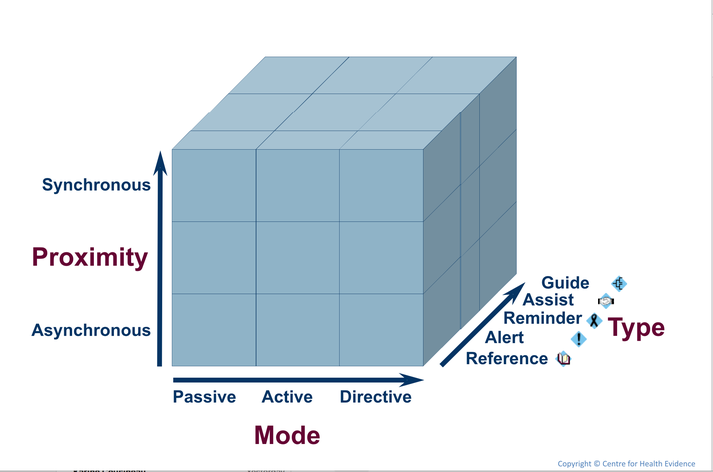Many years ago, while in training and in early practice, I was very careful to choose the right white coat: one with pockets large enough to carry my stethoscope on one side and my Washington Manual of Medical Therapeutics (chosen because it was a reasonable resource that would fit in most pockets) on the other. The pages and cover of this book became dog-eared from frequent use and through the trauma of always being with me.
As I became more experienced and more confident, the book (and the white coat) became less useful and were left on a shelf for intermittent use. It wasn’t necessarily because I felt that I knew everything I needed to know, but improved efficiency and the inconvenience of carrying one more thing around all the time seemed to outweigh the benefits. However, leaving the book behind left me at times feeling unsupported in some of the more complex decisions I was faced with.
Fast forward a few years to electronic medical records (EMRs), electronic health records (EHRs), portable devices and smartphones. These new tools now had the potential to provide timely, specific, evidenced-based information far beyond the capabilities of the Washington Manual, without the need for careful selection of just the right white coat. Now, many different types of clinical decision support are available, with the potential to change the feeling of being unsupported to feeling overwhelmed with all the information available. This problem has been addressed in Alberta through the Clinical Information System (CIS) Clinical Decision Support (CDS) Framework Guide, intended to inform the implementation of CDS into a future CIS, authored by Dr. Robert Hayward.

This guide defines CDS as “systems that link health observations with health knowledge to influence health choices by clinicians for improved health care.” These systems are designed to reduce the occurrence of two main remediable flaws in decision-making: errors of omission and errors of commission. The CDS mode may be passive, active or directive and may occur asynchronously or synchronously.
The guide describes several categories of CDS which are summarized in this table.
The report notes that after more than 30 years of high quality research, the evidence is strong that some types of CDS, including simple reminders such as pap smear, influenza immunization and blood sugar prompts, consistently shift behavior. More complex CDS interventions have shown inconsistent results. Dr. Hayward goes on to say:
“Even allowing for all the gaps in studies of CDS, we know enough to state unequivocally that CDS can improve both health processes and outcomes. We also now know that CDS, when mishandled or ignored, can hamper health processes and outcomes. Especially worrisome is the observation that harms happen when clinicians don’t even realize that they are exposed to CDS.”
He concludes: “The greatest immediate impact is more likely to be had from smaller CDS benefits spread over a very large number of providers and patients, as is the case with simple reminders, alerts and references (integrated with medical records) targeting common errors of omission.”
CDS is entrenched in our health information systems and will continue to evolve, and I am reassured that the appropriate tools are being evaluated carefully. Provincial best clinical guidance forms, using these principles, are openly published for all, including our current EMR vendors. The goal is to bring more consistency across our health care system, particularly for health maintenance reminders. Connect Care has licensed high-quality, point-of-care clinical resources which will be seamlessly integrated into that CIS. Our patients stand to benefit significantly from this technology if we, as clinicians, take the time to understand the advantages and limitations of these tools.
Those interested in learning more will find the following links very informative:
CIS Key Concepts: Clinical Decision Support http://handbook.ahs-cis.ca/?=12643
eHealth Literacy module on CDS (including a 30-minute streaming video presentation) http://ehealth-fd.ca/cdm-cds
Banner photo credit: Pixabay.com
